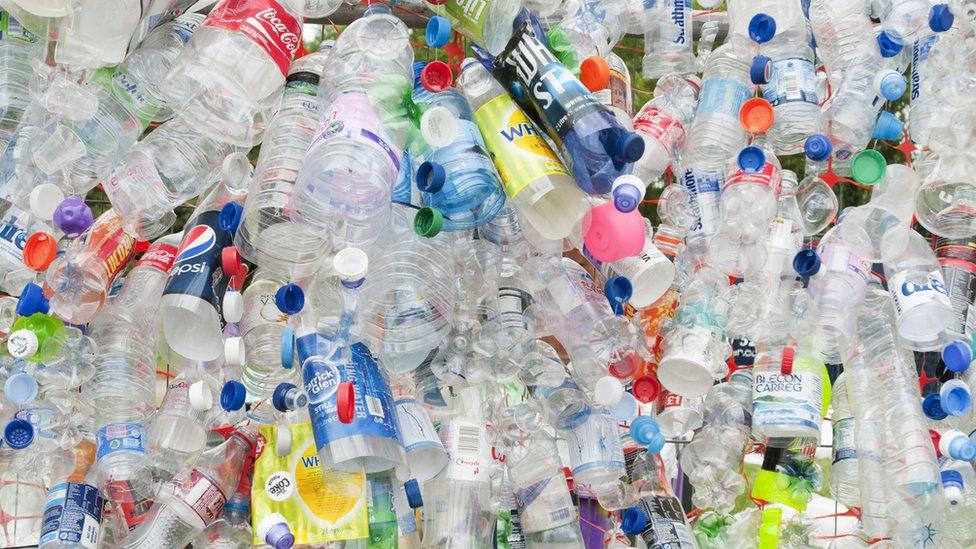Coronavirus: Recycling targets 'challenging' during pandemic
- Published
- comments
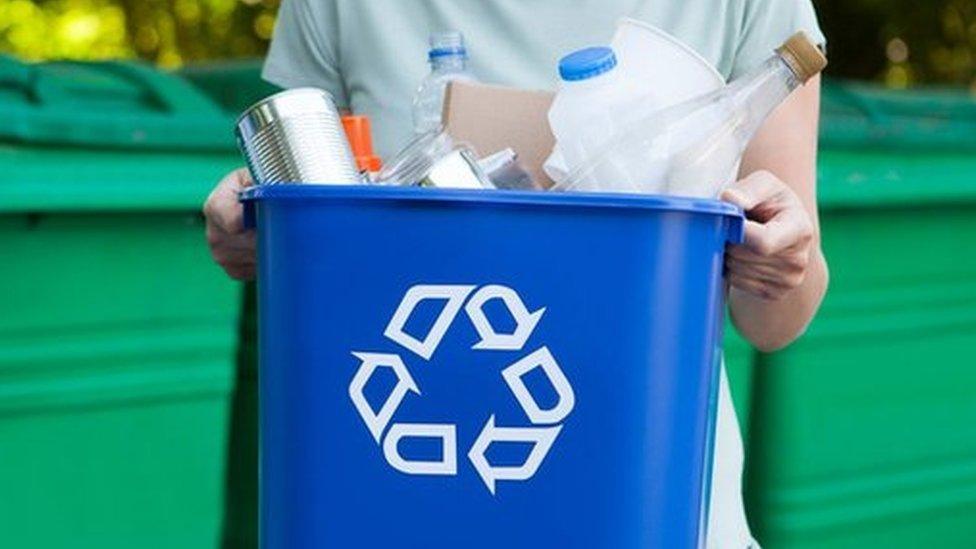
Wales is the only UK country to have beaten EU recycling targets
Meeting recycling targets will be more challenging than ever during the coronavirus pandemic, a number of Welsh councils have said.
There has been a huge increase in household waste and recycling centres have been shut during the outbreak.
Deputy Local Government Minister Hannah Blythyn said legislation needed to adjust targets would not be possible.
But she said the current challenges would be recognised where councils struggled.
Cardiff council is the only local authority in Wales to change the way it is treating recycling due to Covid-19.
Since the lockdown it has started burning household recycling after being hit by a massive surge in domestic rubbish and staff absence during the pandemic.
Cardiff said it was the only way of maintaining a kerbside collection during lockdown.
"One of the problems we were faced with was, not only did we not have the manpower, we still sort recycling by hand and I didn't want to put the health and safety of the staff in any kind of danger," said councillor Michael Michael, the cabinet member responsible for recycling.
Once a week, the council collects all types of waste, aside from garden refuse, and empties it into the same general waste collection vehicle.
It is then taken to be incinerated at the Trident Park Energy Recovery Facility, rather than sorted and recycled.
Mr Michael emphasised this was only a "temporary measure" implemented to ensure a kerbside collection was maintained, while supporting the health and welfare of workers and residents.
"Our priority at the moment is to remove waste from the city's streets as quickly and as safely as possible," he added.
"We have to do this with reduced resources due to the Covid-19 outbreak and the extra help we are giving to the NHS.
"Our message to all residents is please continue to recycle your waste in the green bags provided".

'I don't like the idea of it going to an incinerator'
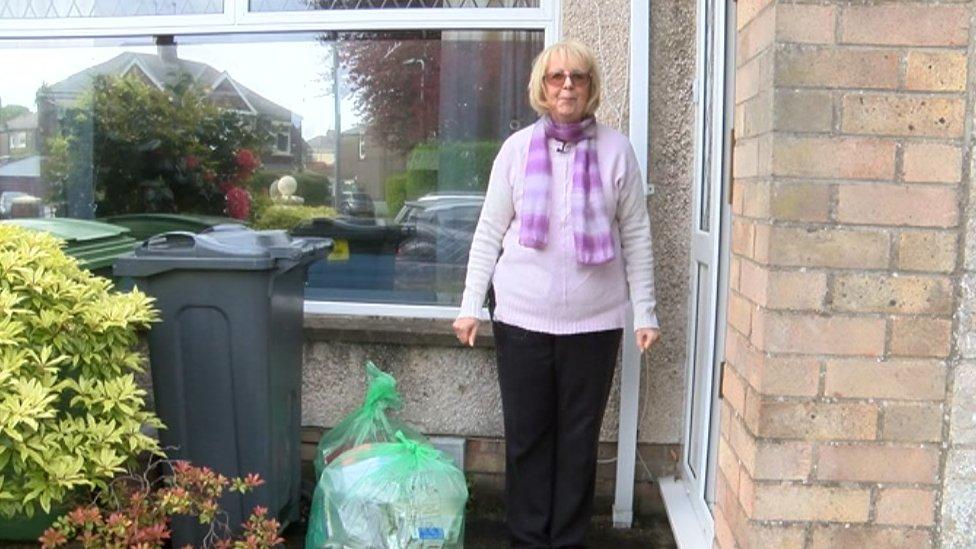
Pauline Bath says studying an Open University module on recycling was an "eye-opener"
Pauline Bath has lived in Cardiff for 50 years. She is a keen recycler and even studied an Open University module in recycling.
She said: "I recycle as much as I can and I feel, because I put a lot of effort into it, I don't like the idea of it going to an incinerator, so I'm keeping everything until they can go back to processing recycling."
She added: "I'm trying to keep hold of my full recycling bags for as long as possible. But I keep them under the stairs so I am running out of room".

The Welsh Government brought in guidelines and targets in the last few years on how to cut household waste.
Councils in Wales are expected to hit 64% for 2019-2020 and 70% by 2024-2025 or face fines of £200 per tonne. The aim is for Wales to produce no waste by 2050, external.
Powys council has seen a 21 per cent rise in the volume of kerbside waste collected during lockdown and said the targets would "inevitably be more challenging".
And Torfaen council said the suspension of garden waste collections and the closure of home waste recycling centres "will affect our recycling performance for the year".
In Wrexham, the rise in kerbside waste has been compared by the council to the volume normally seen at Christmas.
Hannah Blythyn, who is in charge of recycling for the Welsh Government, said the targets were set in law.
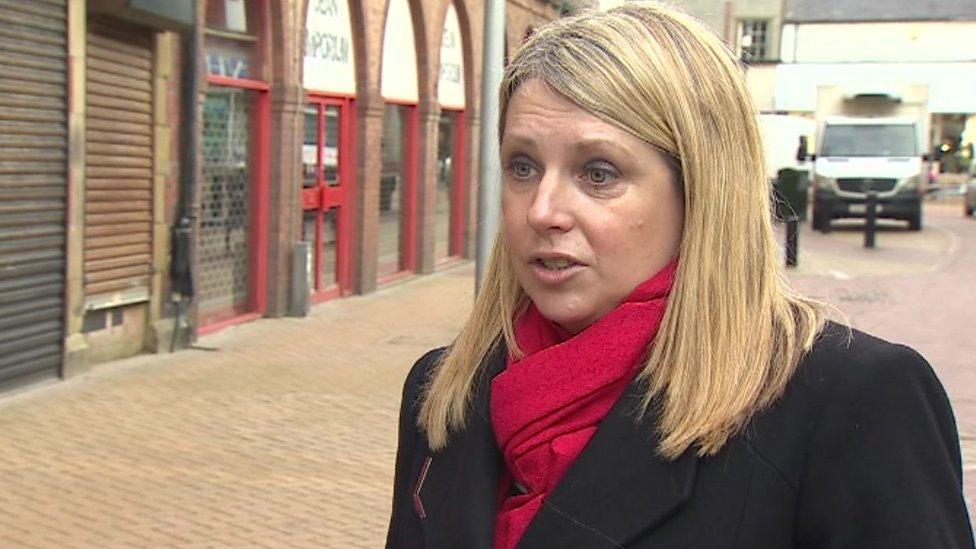
Hannah Blythyn said the impact on recycling targets might not affect councils "as much as people might think"
She said: "We would require legislation to amend that and, given the pressures on our time and resources during the coronavirus pandemic, to amend targets right now might not be the most productive use of our time.
"We can look at any unforeseen circumstances that have occurred across all local authorities.
"But the targets for 2019-2020 come at the end of the financial year so the impact of Covid-19 might not affect councils as much as people might think."
'Key service'
She said waste and recycling collection was a "key service" and the government was working with the Welsh Local Government Association and individual councils to ensure it was prioritised and maintained.
"We're very proud of our record on recycling and, although this has been a difficult time for local authorities, they have worked hard to maintain collections while also dealing with greater demand for services'."
- Published24 November 2019
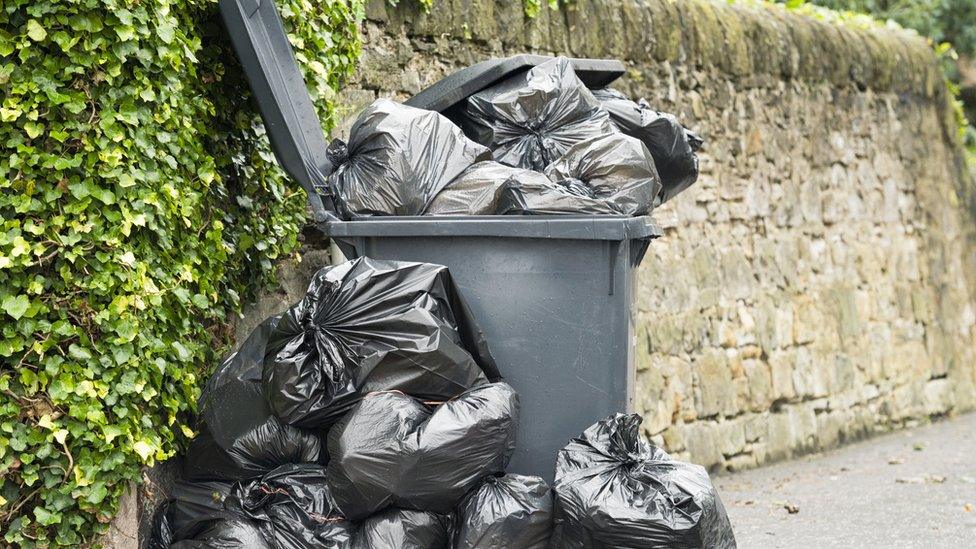
- Published4 November 2019
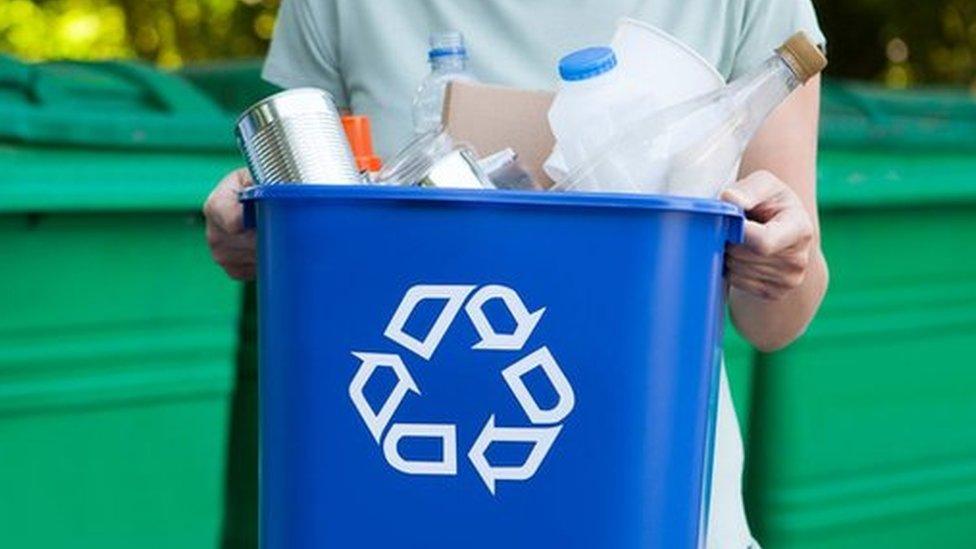
- Published20 December 2019
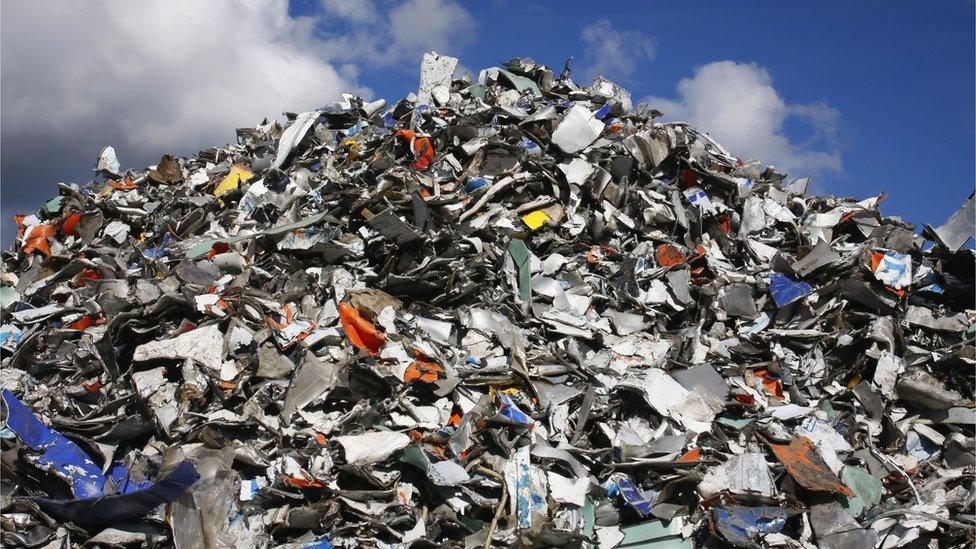
- Published29 April 2019
